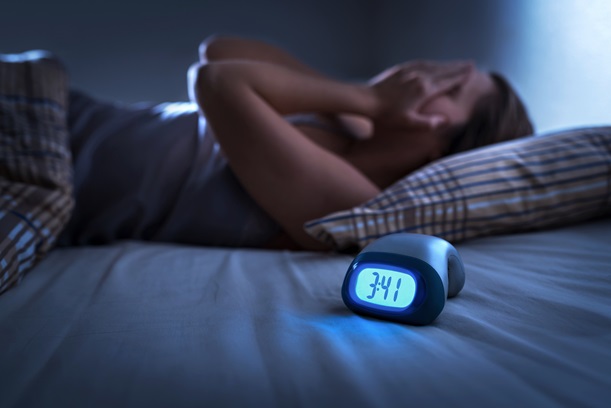Adrenaline and Everything You Need To Know About It
If you don’t live under a rock, you’ve probably heard of adrenaline. But have you ever thought about what it is, what it does and is it even good for you? If you haven’t, you’re in luck because we’re going to decode the chemical in this article.
What is Adrenaline?
Adrenaline, also known as epinephrine, is a hormone and medication. It is released by your adrenal glands (located at the top of each kidney) and some neurons. Fun fact – adrenaline gets its name from its parent gland.
The adrenal glands are responsible for producing many hormones, including aldosterone, cortisol, adrenaline, and noradrenaline. The adrenal glands are controlled by another gland called the pituitary gland.
The Famous Adrenaline Rush
Chances are the only time you’ve heard of the hormone is when someone is explaining their rush, excitement, high or thrill. Adrenaline is an early evolutionary flight or flight system built into us. It allows us to cope with dangerous and unexpected situations.
Causes of Adrenaline

The hormone can be released under various circumstances like coping up with dangerous, exciting, stressful, or life-endangering situations. Are you still wondering why our bodies produce adrenaline and what good can it do? If you weren’t, you should.
Adrenaline can help your body react more quickly. It makes the heart beat faster, increases blood flow to the brain and muscles, and stimulates the body to make sugar to use for fuel. In other words, it’s like your spidey sense. You’ll have heightened senses and everything around you will slow down, and give you the time to make your move.
The Process of Adrenaline Release
We’re sure, at some point or the other, you have heard someone say that “it’s all in your head.” It turns out, it’s true for adrenaline production as well. When you perceive a dangerous or stressful situation, that information is sent to a part of the brain called the amygdala.
Amygdala is the part of the brain which plays an important role in emotional processing. The involvement of the amygdala tells us that people are prone to making emotionally charged decisions when they’re high on the hormone. This explains the stupid things that some athletes do during an intense game.
If the amygdala perceives danger, it sends a signal to another region of the brain called the hypothalamus. We know it can get a little confusing but stay with us. The hypothalamus is the command center of the brain and communicates with the rest of the body through the sympathetic nervous system.
Then our trusty hypothalamus sends a signal through autonomic nerves to the adrenal medulla (part of the adrenal gland). As soon as the adrenal glands receive the signal, they release adrenaline into the bloodstream.
Effects of Adrenaline Release

We’re sure most of you didn’t know all this about adrenaline until today. It’s great to be learning new things. Now that the hormone is in our bloodstream, let’s talk about what happens next.
- It binds to receptors on the pancreas to inhibit the production of insulin
- It stimulates cells of the heart to beat faster
- Adrenaline binds to receptors on liver cells to break down larger sugar molecules, called glycogen, into a smaller, more readily usable sugar called glucose; this gives your muscles a boost of energy
- It binds to receptors on muscle cells in the lungs which causes you to breath faster
- It triggers the blood vessels to contract and direct blood toward major muscle groups
- The hormone contracts muscle cells below the surface of the skin to stimulate perspiration
Since the changes mentioned above happen so quickly as the adrenaline circulates throughout the blood, the phenomenon is called adrenaline rush. The process is so fast that you might not even realize that you’re being influenced by the chemical.
Benefits of Adrenaline
Rushes Blood Where it’s Needed

It’s safe to say that the human race wouldn’t have survived if it wasn’t for adrenaline. Your air passages dilate when the body gets into a fight-or-flight mode. The wider air passages provide your muscles with the high levels of oxygen they need to either take on the enemy or run for your life.
Adrenaline also cuts off the blood supply to body parts which don’t help in the life-saving processes. The hormone triggers the contraction of blood vessels in a way that redirects blood to the major muscle groups which will help you save your hide.
Turns You Into A Beast (For a few moments, at least)
Your body releases adrenaline when its in a do-or-die situation. When you have adrenaline in your bloodstream, you’ll have strength, performance and a tunnel vision. With the hormone, you might be able to leap past your usual physical boundaries.
Adrenaline shuts the self-doubting part of your brain which says things like “it’s very unlikely that you’re going to be able to do that.” Some studies show that the superhuman qualities of adrenaline can last up to an hour.
You Feel No Pain
Adrenaline sounds too good to be true but it can turn you into the man of steel as it helps in knocking down your body’s ability to sense pain. The hormone is responsible for powering you to run for your life after a bear attack or chatting up the cute paramedic while you’re sporting a gnarly injury.
Thanks to the millions of years of evolution, our bodies have trained themselves to avoid dangers and stay alive. The perception of pain gets in the way of that noble goal – so the adrenaline gets between your brain and the injury.
Boosts Your Immune System

Adrenaline can pump up your immune system and can even slow down the aging process. Short durations of high alertness can boost your immune system as the body’s fight-or-flight attack response levels you up against microbial attack as well as attack by house spiders.
Adrenaline can improve your body’s ability to fight against infections – at least temporarily. It also increases the number of antioxidants circulating in your system. It helps in combating the free radicals that cause aging and tissue damage.
Increases Your Brain’s Lifting Power
Without a sharp and focused brain, all that physical powers of adrenaline would be of no use. If you can’t make the right judgment and dodge an oncoming car, all the strength is of no use – unless you are a mutant.
When adrenaline is in the bloodstream, the brain is oxygenated, fully engaged, laser-focused and set up to knock down cognitive tasks much more efficiently. The reflexes and focus often remain long after the stimulus is out of the picture.
How To Boost Adrenaline
A few of the adrenaline-boosting activities include –
- Cliff Jumping
- Zip Lining
- Bungee Jumping
- White Water Rafting
- Watching a horror movie
- Skydiving
- Cliff jumping
- Cage diving with sharks
Let’s say you don’t have the time to do all the activities mentioned above but can use a little adrenaline- punch. These are some of the ways you can boost your adrenaline levels –
Strike A Power Pose

Every wondered why Superman is always standing in the same pose (with his chest out and hands on the sides) in every poster? Not only does that pose make him look cool, it primes him for an action-packed day.
A 2010 study shows that holding a power pose for one minute – sitting or standing in a way that makes you feel more powerful can decrease cortisol levels by 25 percent. The next time you’re feeling panicked or going into an important meeting, use that one-minute power pose to your advantage.
Eat What You Feel Like
Comfort foods are packed with vitamins and antioxidants that can reduce stress. For this reason, you’ll never see someone eating a pizza with a sad face. If you’re into the fit life, foods that are high in folic acid and zinc, like spinach and avocado, or vitamins B and C (which you’ll find in blueberries and oranges) can keep stress away.
Take Short and Small Breaths

Your body naturally releases adrenaline when you’re facing life-threatening situations. You can’t expect to boost the hormone while taking deep breaths and being in a meditative state. You can trick your body into releasing adrenaline by breathing low but not deep.
Breathing fast and expelling the carbon dioxide too hard can make you feel dizzy or hyperventilate because not enough oxygen is being delivered to your brain. Hit the sweet spot and you’ll be up for a sprint against Usain Bolt.
Move Your Body
As much as we would like it, we can’t pump-up adrenaline by sitting on our rears. The fight-or-flight hormone is secreted when you have to run/fight for your life. Since we don’t want you to be under life-endangering situations all the time, we’ll let you in on a few things that can improve adrenaline production.
Ditch the elevator or escalator and take the stairs when possible. Running up a flight of stairs could get your adrenaline pumping and help you feel more alert. Workout or go for a run before an important event.
Harms of High Adrenaline Levels
You might be thinking if adrenaline is so cool, why not be high on it all the time and why aren’t the hormone pumping supplements in circulation? Adrenaline, like every other thing, has its fair share of drawbacks.
Insomnia

Being excited, scared or hyper can make you lose your sleep. Although this effect of adrenaline is great for soldiers on an invasion, it can wreak havoc on a normal person’s daily functioning. While perceived stress like an argument you had in the day can give you an extra boost of energy, it has no use in the dead of the night.
Weight Gain
When the adrenaline is pumped and the blood rushes into your limbs. The hormone boosts the supply of oxygen and glucose to the brain and muscles while suppressing other non-emergency bodily processes (digestion in particular). Being high on adrenaline for too long and often can result in weight gain.
Impaired Thinking

On an adrenaline rush, your reflexes and muscles take over and logical thinking is shunned. You shouldn’t expect to make sound long-term decisions when you’re hyper. Of course, you called your ex when you were drunk and your favorite song was playing on the radio.
Anxiety
Since adrenaline is an evolutionary hormone designed to kick in when there is imminent danger, it brings with it a surprise factor. If you’re being attacked, you could either run away or fight back. The results of both the activities are unknown which can trigger anxiety and restlessness.
Nervousnesses and Sweating

It’s not uncommon to be nervous and sweaty before a big event. It could be walking down the aisle, appearing for an interview or stepping on stage. The thing is, when you’re one of these things – people can tell.
How to Control Adrenaline
Persistent surges of adrenaline can damage your blood vessels, increase your blood pressure, and elevate your risk of heart attacks or stroke. If you get regular adrenaline rushes or don’t want to deal with the side effects that come with it, you should avoid doing or do the opposite of the hormone boosting activities mentioned above.

Other things you should do to control adrenaline production are –
- Avoid cellphones, bright lights, computers, loud music, and TV right before bedtime
- Meditation and deep breathing exercises
- Eat a balanced and healthy diet
- Yoga or tai chi exercises, which combine movements with deep breathing
- Limit caffeine and alcohol intake
- Share about stressful situations with your friends and family so you’re less likely to dwell on them
If you have chronic stress or anxiety and it’s preventing you from getting rest at night, you should consult a doctor about anti-anxiety medications, such as selective serotonin reuptake inhibitors (SSRIs).
Although rare, some medical conditions can cause an overproduction of adrenaline. A tumor of the adrenal glands, for example, can overstimulate the production of adrenaline and cause adrenaline rushes. For people with post-traumatic stress disorder (PTSD), memories of the trauma may elevate adrenaline levels after the traumatic event.




